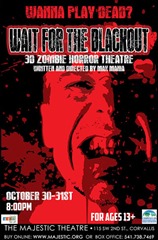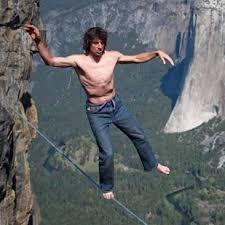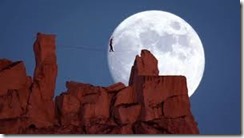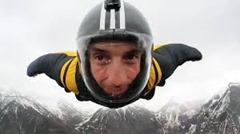You are currently browsing the tag archive for the ‘fear’ tag.
 The blood, shouts, gun shots, raw fear and frantic chaos of violent nihilistic death took me back nearly 50 years.
The blood, shouts, gun shots, raw fear and frantic chaos of violent nihilistic death took me back nearly 50 years.
At age twelve I was stunned by The Night of the Living Dead which deeply changed subsequent cinema, literature, and culture.
Last night I relived moments of the iconic film at Wait for the Blackout, a one-act drama where the conventions of undead culture played out in the flesh (which did not always remain attached to the human form).
George Romero’s classic depiction of desperate people in a farm house resisting hordes of the zombies smashed numerous social boundaries including parricide, infanticide, cannibalism, racism, and reverence for the dead.
Max Mania’s stage depiction of desperate people in a theater surrounded by undead referenced many of the ideas which have become the staples of zombie cinema.
A successful aspect of Wait for the Blackout is the use of unseen elements that establishes the enveloping threat. The back stage plays a prominent role as events unseen erupt in the alley as well as the lobby and street in front. Disturbing noises from all round rendered the impending threat very real. What was outside – whatever it was – would soon be coming inside and that would not be good.
that establishes the enveloping threat. The back stage plays a prominent role as events unseen erupt in the alley as well as the lobby and street in front. Disturbing noises from all round rendered the impending threat very real. What was outside – whatever it was – would soon be coming inside and that would not be good.
The characters in Wait for the Blackout are the strongest aspect of the play. They are the stage crew for a work in production; all of them flawed personalities. The effect of this work comes largely from stripping away of the characters social compensations for their flaws as the horror of the moment leaves only their raw vulnerability. Dora’s cynical facade is corroded by the cascading violence. Rachel’s stoic optimism falters as she encounters situations that she cannot understand or adapt. Daniel makes an interesting transformation from selfish cowardice to resolute stoicism as hope drains. Alex, the clueless Director, undergoes a more ambiguous change as he loses humanity entirely to ultimately betray his cast. Wait for the Blackout’s players explore these psycho-dramatic subtleties convincingly.
Most of the action was played for laughs and received as such. The humor came from over-the-top effects, references to clichés of the zombie genre and  characterizations such as Daniel’s exasperating cowardice. The film Zombieland used similar devices. Unlike that film, Wait for the Blackout is punctuated by the abjectly unfunny such as how to treat the corpse of a friend.
characterizations such as Daniel’s exasperating cowardice. The film Zombieland used similar devices. Unlike that film, Wait for the Blackout is punctuated by the abjectly unfunny such as how to treat the corpse of a friend.
Wait for the Blackout’s script had difficulty reconciling the role of the audience. On one hand the action all takes place in an empty theater as the stag crew works on set design. Yet as the plot ensues the actors directly address and involve audience as if engaged in a live show – which it actually is but not written as. Since the players also address the violence that is happening outside the theater, the alternation of speaking forth from the stage is unclear.
The title, Wait for the Blackout, derives from a 1980 song of the same name by the proto-goth/punk band The Dammed. It includes the lyrics;
“In darkness there is no sin light only brings in the fear
Nothing to corrupt the eyes there is no vision here
At first you may find it strange but do not go away
The darkness holds a power that you won’t find in the day”
In the play the lights fail over time until the power of darkness overtakes every spark of hope. Redemption is lost and those in attendance have become witness only to the doomed and the dammed.
That’s impressively fresh dramatic effect for a genre that has been worked to death.
Image Acknowledgements
563149a5674b9.image.jpeg
http://www.gazettetimes.com/albany/entertainment/arts-and-theatre/theatre/wait-for-the-blackout/article_3fd5ccbe-a146-5022-b44a-26f910e59d1e.html
Blackout-Show-11×17-1000×1545
http://majestic.org/event/wait-for-the-blackout/
night_of_the_living_dead_trowel_04.jpeg
http://www.giantfreakinrobot.com/topic/night-of-the-living-dead
 Dean Potter jumped off a cliff 2,286m (7,500ft) up and died. He had done this and other stunts taunting death many times; in the end death won.
Dean Potter jumped off a cliff 2,286m (7,500ft) up and died. He had done this and other stunts taunting death many times; in the end death won.
Dean is a celebrity among many people who risk their lives to base jump, climb, dive, and engage in other activities known as “extreme sports.”
I have no criticism of those who engage in extreme sports, even when like Dean they hit the wall.
I do think that his death affords an opportunity to explore an interesting distinction – that is: our culture commonly reviles people who kill themselves, but does not revile (and even honors) people who get themselves killed.
Dean Potter got himself killed, but he did not kill himself. That distinction is at the core of why folks dead people like Dean are treated heroically, even spiritually, in the media while suicides are publicly called out as “cowards.”
The legal status of killing oneself has changed in the US from being a felony in all 50 states to currently having no explicit criminal sanction, but will likely invoke State health authority.
Getting oneself killed has never been criminal, so far as I am aware, so that jumping out of an airplane, a cliff, or building is one’s own business, unless it involves trespassing.
People who get away with such activities are not treated publicly as criminals, but as celebrities.
There is something fascinating about people who risk their lives for fun and profit. In 19th century England attempted suicide was punishable by the death penalty. At the same time people paid to see performers go over waterfalls in a barrel and for Houdini to court death chained in tank of water.
profit. In 19th century England attempted suicide was punishable by the death penalty. At the same time people paid to see performers go over waterfalls in a barrel and for Houdini to court death chained in tank of water.
Perhaps the distinction is based in the intention. The serious suicide intends to kill themselves and die. The daredevil is not overtly trying to kill themselves and die, but rather to come close to death and escape its grasp.
Dean Potter did not jump off a cliff because he wanted to die. He expected to live to tell the tale of his near-death experience. He spoke of his experience of fear and his intense awareness that he might die.
It by surviving that the daredevil represents a triumph over death. We honor the risk takers because they show it possible to overcome the fears that we experience.
 Accordingly, when the risk ends in death such as Dean Potter, our sense of the risk is verified and we know that he was playing it for real.
Accordingly, when the risk ends in death such as Dean Potter, our sense of the risk is verified and we know that he was playing it for real.
I suspect that the more successful we are at preventing death by disease, accidents, and violence, as our natural life spans increase, our value for living will grow. One effect of this value is that daredevils – those who risk death – will become more special and interesting for us because they will be risking even more.
To be clear – I find daredevils fascinating and followed Dean Potter’s adventures. I am not criticizing him or other risk takers.
I do think it is relevant to re-think how we classify those who get themselves killed and those who kill themselves.
